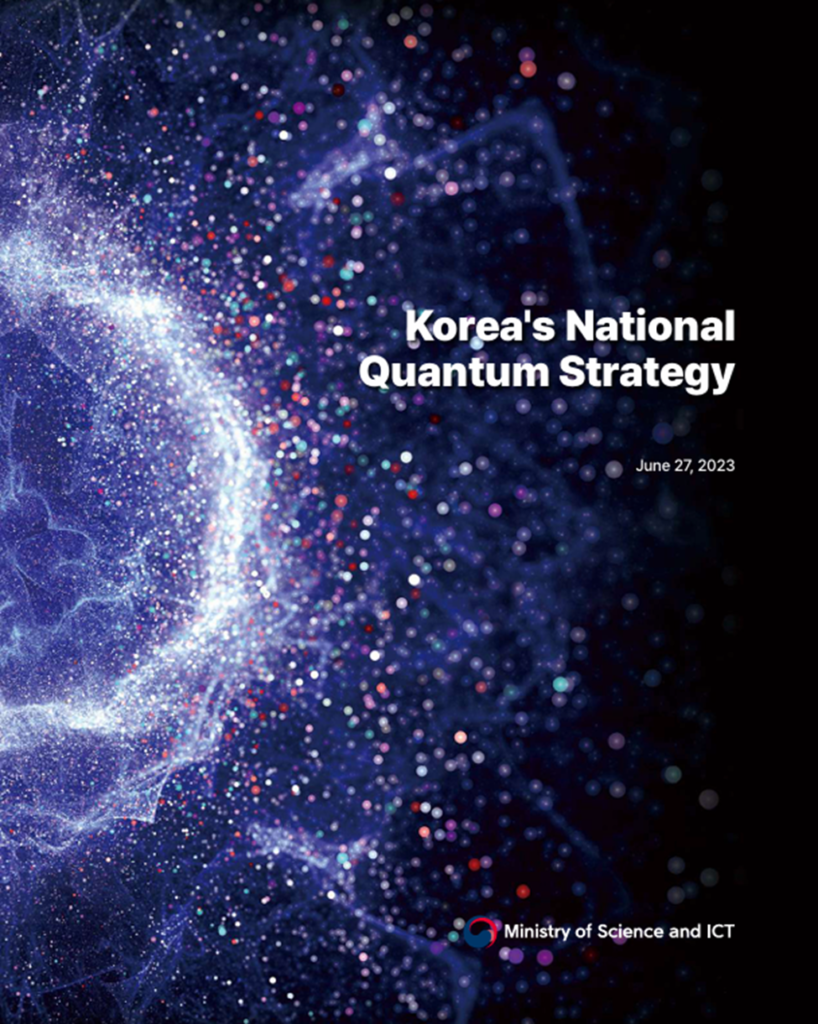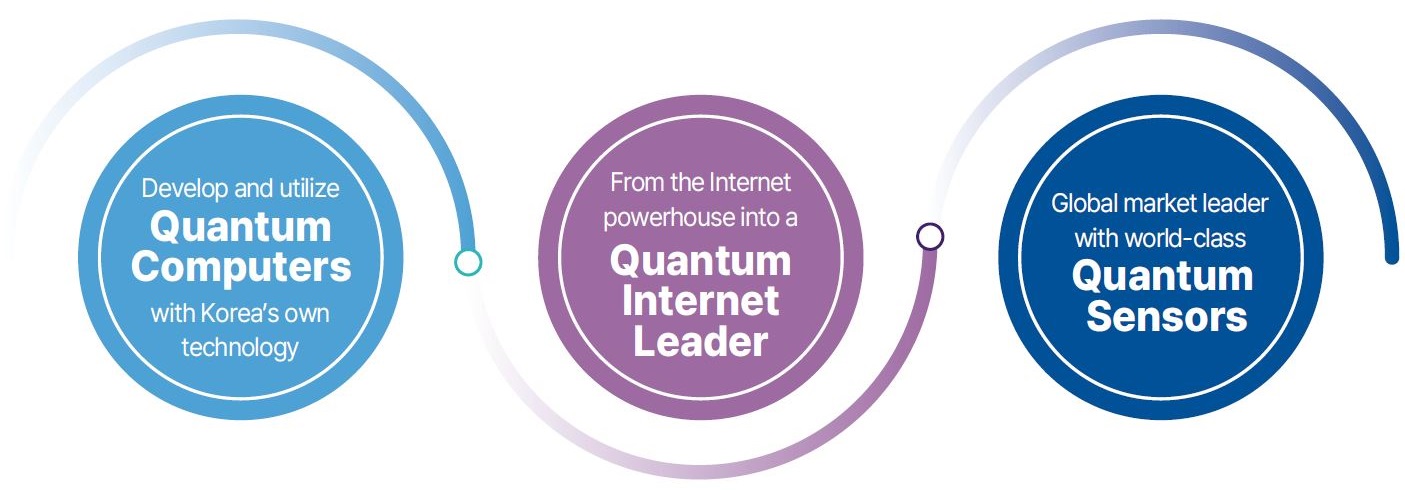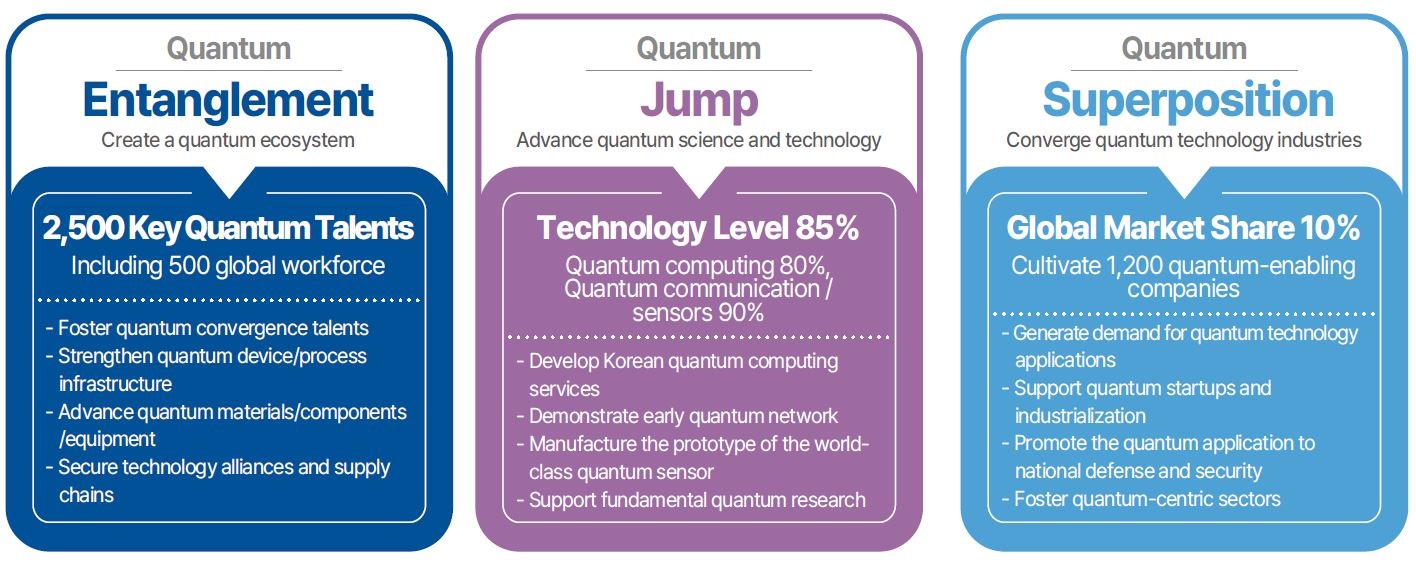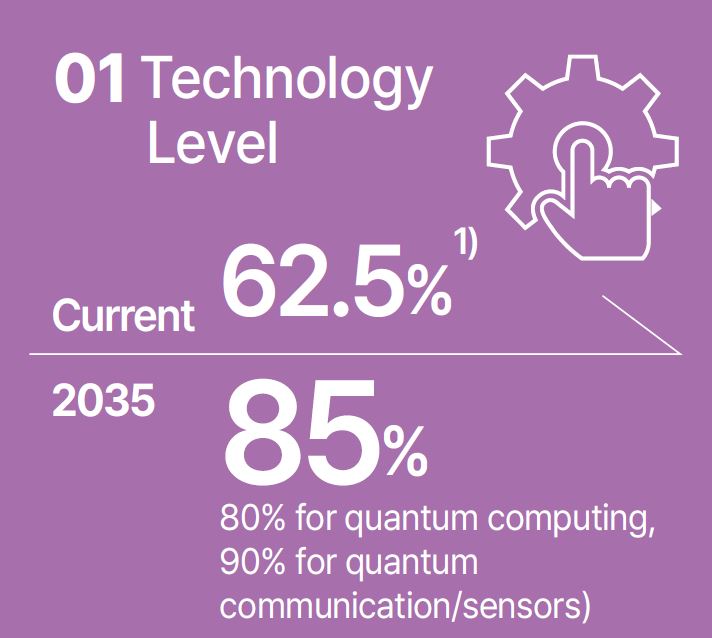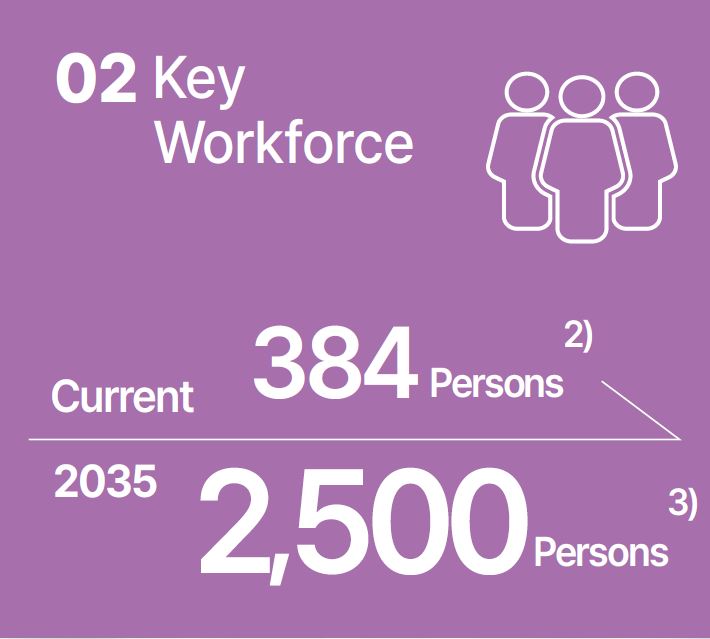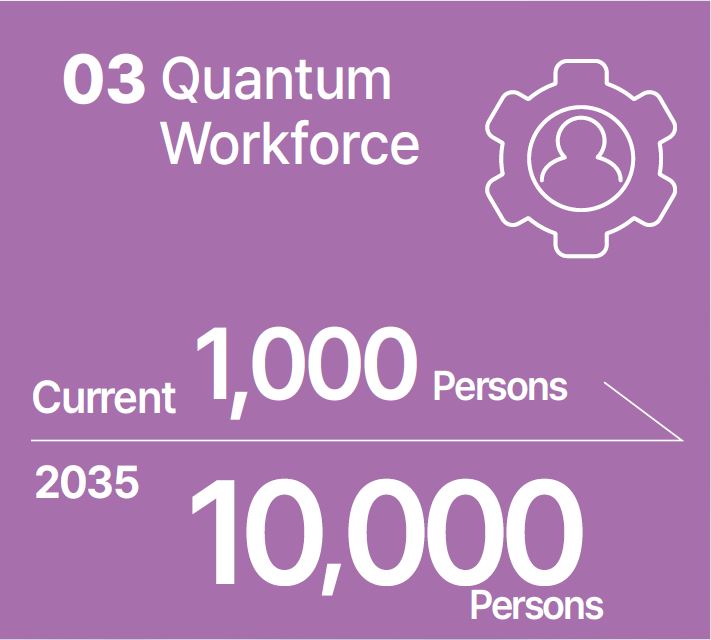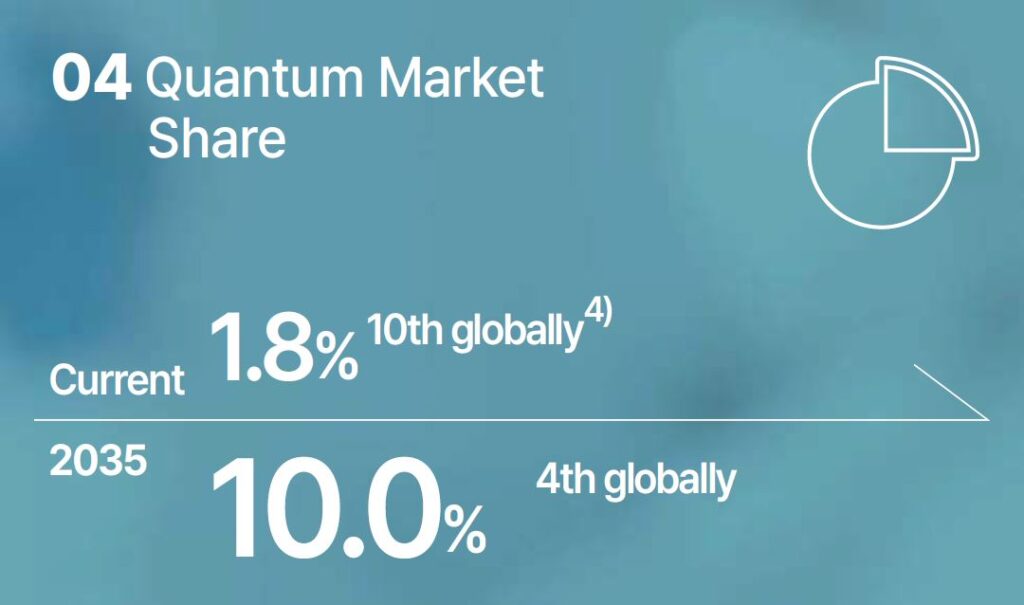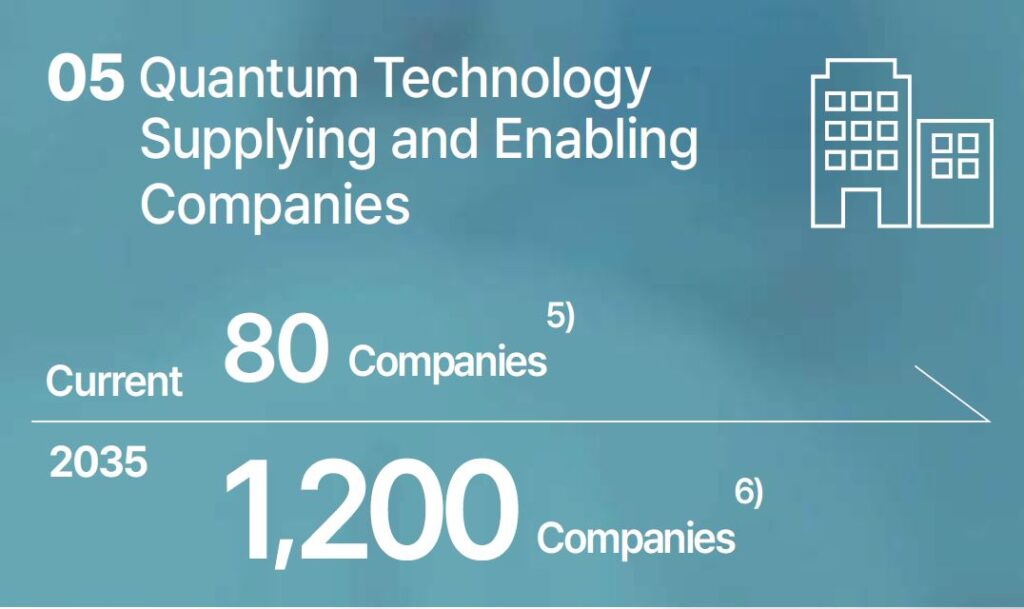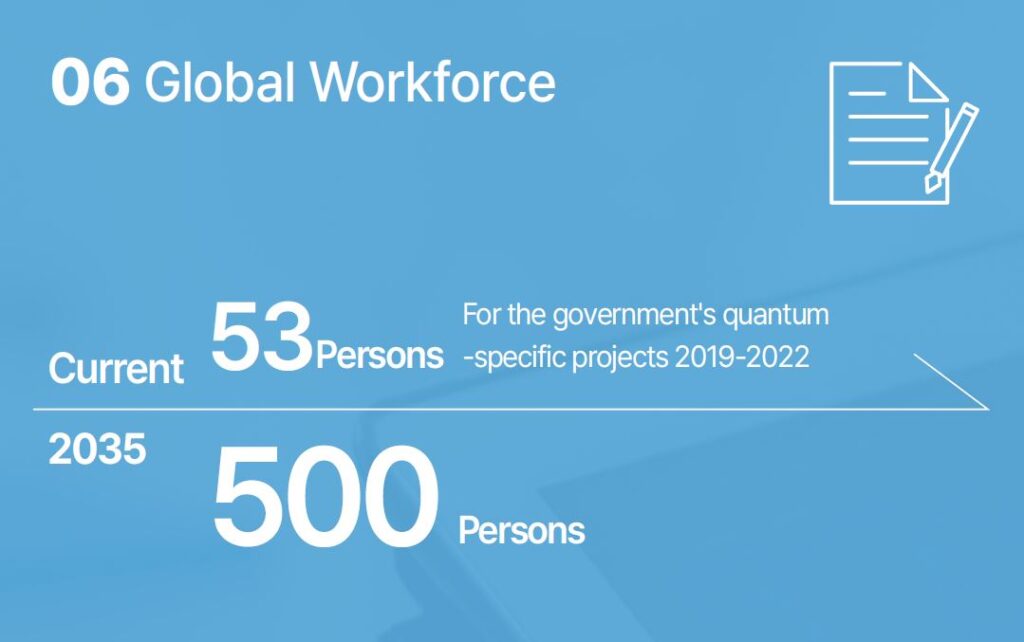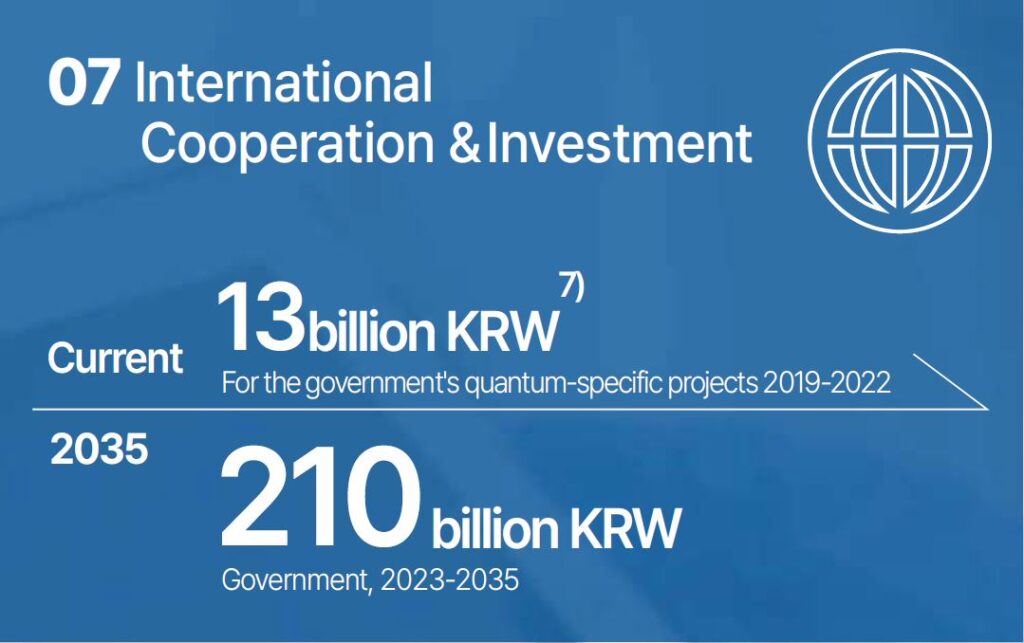a. Korea plans to launch a Quantum Science and Technology Flagship Project with clear technology objectives by 2031.

b. Korea focuses on developing and establishing systems for universal quantum computers based on superconducting technology with 1,000 qubits.
c. We will acquire fundamental quantum network technologies, such as quantum memory, quantum repeaters, and quantum satellite communication technology, which will substantially impact industry and security. Additionally, we will demonstrate a quantum network based on quantum entanglement that spans over 100 km between cities.
d. Korea, in the early stage of commercializing wired quantum cryptography communication, will make a concerted effort to improve this technology’s performance, transmission speed, and distance. The ultimate goal is to achieve nationwide-scale wired quantum cryptography communication without the need for repeaters, which will cover distances exceeding 500 km.
e. The government will devise a national-level master plan for the post-quantum cryptography transition by the end of the year to address the threat of the collapse of current encryption systems as a result of the development of high-performance quantum computers.
f. The government will create a testbed environment that will enable private companies to evaluate the safety and performance of post-quantum cryptography which is integrated into their products. This will bolster the practical implementation of the technology.


